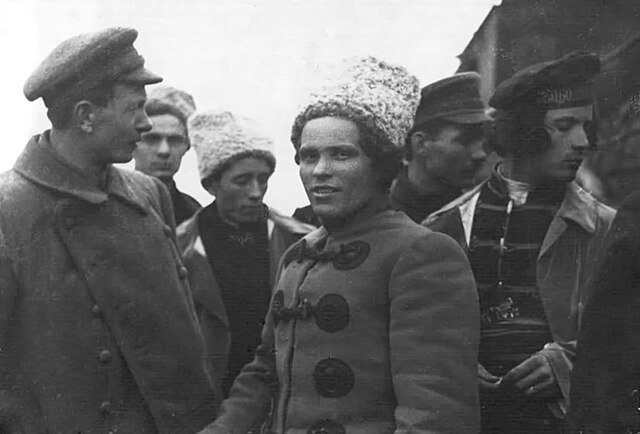Anarcho-syndicalism is a political philosophy and anarchist school of thought that views revolutionary industrial unionism or syndicalism as a method for workers in capitalist society to gain control of an economy and thus control influence in broader society. The goal of syndicalism is to abolish the wage system, regarding it as wage slavery. Anarcho-syndicalist theory generally focuses on the labour movement. Reflecting the anarchist philosophy from which it draws its primary inspiration, anarcho-syndicalism is centred on the idea that power corrupts and that any hierarchy that cannot be ethically justified must be dismantled.
Fernand Pelloutier, a leading figure within the Bourse du Travail movement
Christiaan Cornelissen, an early leader of the anarcho-syndicalist movement following the International Anarchist Congress of Amsterdam
Founding congress of the Confederación Nacional del Trabajo (CNT)
Demonstration by the Argentine Regional Workers' Federation (FORA) in 1915
Anarchism is a political philosophy and movement that is against all forms of authority and seeks to abolish the institutions it claims maintain unnecessary coercion and hierarchy, typically including the state and capitalism. Anarchism advocates for the replacement of the state with stateless societies and voluntary free associations. As a historically left-wing movement, this reading of anarchism is placed on the farthest left of the political spectrum, usually described as the libertarian wing of the socialist movement.
Wilhelm Weitling is an example of a writer who added to anarchist theory without using the exact term.
Zeno of Citium (c. 334 – c. 262 BC), whose Republic inspired Peter Kropotkin
Nestor Makhno seen with members of the anarchist Revolutionary Insurgent Army of Ukraine
Rojava's support efforts for workers to form cooperatives is exemplified in this sewing cooperative.








